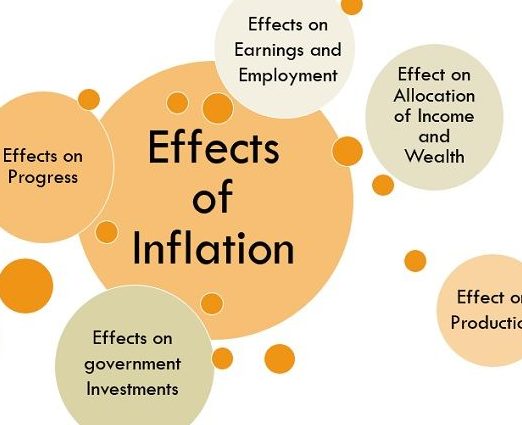Inflation is a key economic concept that influences many aspects of our daily lives. It refers to the rate at which the general level of prices for goods and services is rising, and consequently, the purchasing power of currency is falling. This article will explore what inflation is, its causes, and its impact on the economy.
Understanding Inflation
Inflation occurs when the average price level of goods and services in an economy increases over time. This can be measured by various indices, with the Consumer Price Index (CPI) being one of the most common. Key aspects of inflation include:
- Price Increases: Inflation is characterized by a general rise in prices across the economy. This means that the same amount of money buys fewer goods and services than before.
- Measuring Inflation: Economists use price indices like the CPI or the Producer Price Index (PPI) to measure inflation. These indices track changes in the price of a basket of goods and services over time.
- Types of Inflation: There are several types of inflation, including demand-pull inflation (caused by increased demand), cost-push inflation (due to rising production costs), and built-in inflation (resulting from past inflationary expectations).
Causes of Inflation
Several factors can contribute to inflation, each affecting the economy in different ways:
- Demand-Pull Inflation: This occurs when the demand for goods and services exceeds their supply. Increased consumer spending, government expenditure, or investment can drive up prices.
- Cost-Push Inflation: This type of inflation happens when the costs of production increase, such as rising wages or raw material prices. Businesses often pass these higher costs onto consumers in the form of higher prices.
- Built-In Inflation: Also known as wage-price inflation, this occurs when workers demand higher wages to keep up with rising prices. Businesses then raise prices to cover the higher wage costs, creating a feedback loop.
- Monetary Policy: Central banks can influence inflation through their control of money supply and interest rates. Expanding the money supply can lead to inflation, while tightening it can reduce inflationary pressures.
Impact of Inflation on the Economy
Inflation affects the economy in various ways, influencing everything from consumer behavior to investment decisions:
- Purchasing Power: As inflation rises, the real value of money decreases. This means that consumers can buy less with the same amount of money. This erosion of purchasing power can reduce the standard of living if wages do not keep pace with inflation.
- Interest Rates: Central banks often adjust interest rates to control inflation. Higher interest rates can reduce inflation by making borrowing more expensive, which can slow down spending and investment. Conversely, lower interest rates can stimulate economic activity but may also lead to higher inflation.
- Investment and Savings: Inflation can impact investment decisions. Investors may seek assets that are less affected by inflation, such as real estate or commodities. For savers, inflation can erode the value of savings if the interest earned does not outpace inflation.
- Wage Adjustments: In periods of high inflation, workers may demand higher wages to keep up with rising prices. This can lead to wage-price spirals, where increased wages lead to higher prices, which in turn leads to further wage demands.
- Business Costs: For businesses, inflation can increase the cost of raw materials and production. Companies may respond by raising prices, which can affect their competitiveness and profit margins. Managing these costs effectively is crucial for maintaining business sustainability.
Managing Inflation
Governments and central banks use various tools to manage and control inflation:
- Monetary Policy: Central banks use tools such as interest rate adjustments and open market operations to influence inflation. By raising interest rates, central banks can reduce spending and investment, helping to curb inflation. Conversely, lowering interest rates can stimulate economic activity.
- Fiscal Policy: Governments can use fiscal policy to influence inflation by adjusting tax rates and public spending. Reducing government spending or increasing taxes can help lower inflation, while increasing spending or cutting taxes can stimulate demand.
- Inflation Targeting: Many central banks adopt inflation targeting as a policy framework. This involves setting an explicit inflation rate target and using monetary policy tools to achieve and maintain that target.
- Supply-Side Policies: Improving productivity and efficiency in the economy can help manage inflation. Supply-side policies focus on enhancing the ability of businesses to produce goods and services more efficiently, which can help keep prices stable.
In conclusion, inflation is a fundamental economic concept with significant implications for individuals and businesses alike. By understanding its causes and effects, and how it is managed, one can better navigate its impacts on personal finances and the broader economy.

